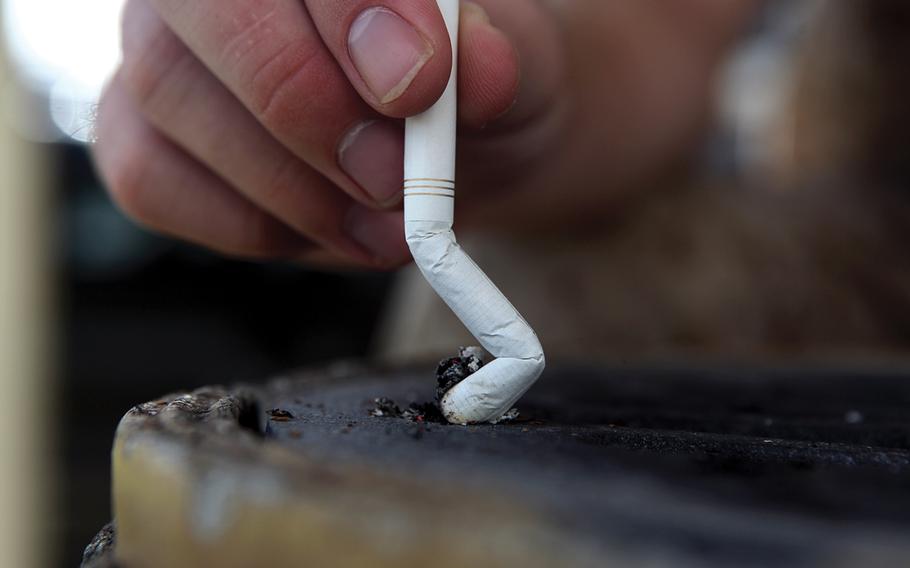
The House Committee on Veterans’ Affairs voted unanimously Wednesday, May 17, 2017, to move forward with legislation that would immediately ban smoking inside Department of Veterans Affairs facilities and require the agency to eliminate outdoor smoking areas by 2022. (Heather Johnson/U.S. Marine Corps)
WASHINGTON — The House Committee on Veterans’ Affairs voted unanimously by voice vote Wednesday to move forward with legislation that would immediately ban smoking inside Department of Veterans Affairs facilities and require the agency to eliminate outdoor smoking areas by 2022.
No one on the committee spoke against the bill, despite a lukewarm response to the legislation from major veterans organizations. The bill would strike a 25-year-old mandate that requires the VA to maintain smoking areas at its health care facilities.
“A lot has changed in 25 years,” said Rep. Brad Wenstrup, R-Ohio, who introduced HR 1662. “It’s an outdated law that exists in direct violation of industry standards.”
The bill moves to the full House, where it could be scheduled for a vote.
The VA has attempted for years to rally congressional support against the mandate, the Veterans Health Care Act of 1992. While smoking areas at other federal facilities were closed in 2009, the law required VA to maintain them.
The American Legion, Paralyzed Veterans of America, Disabled American Veterans and Veterans of Foreign Wars took no firm stance on the bill in March, but warned in prepared testimony of unintended consequences, such as forcing a lifestyle change and eliminating a form of stress relief and social interaction for veteran patients.
There are now nearly 1,000 outdoor smoking areas at VA facilities nationwide, as well as 15 indoor smoking areas. The VA, which views them as a health concern to patients and employees, estimated it would save about $1.2 million each year spent on maintaining the areas. Some of the areas are climate-controlled.
“VA strongly supports this,” VA Deputy Undersecretary for Health Jennifer Lee told a House subcommittee in March. “We have proposed legislation for many years to reverse the requirement. We believe veteran patients have a right to be protected from secondhand smoke exposure when seeking health care.”
The Commissioned Officers Association of the U.S. Public Health Service as well as more than a dozen health care agencies have come out in support of Wenstrup’s bill.
A study published in the American Journal of Public Health in 2013 contends the tobacco industry manipulated veterans organizations and Congress to create the law after the first VA secretary, Ed Derwinski, announced in 1990 his intentions to prohibit smoking inside VA facilities.
wentling.nikki@stripes.com Twitter: @nikkiwentling